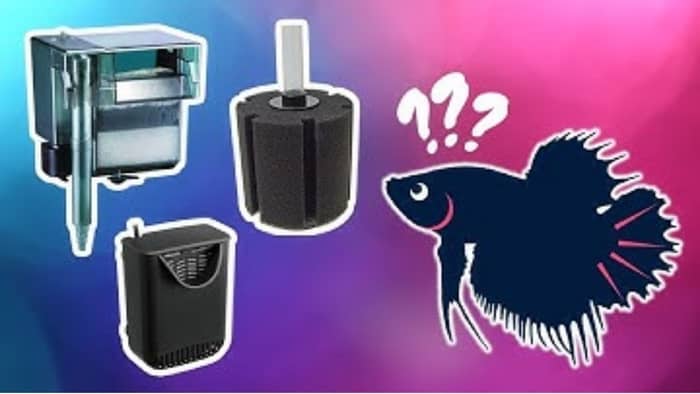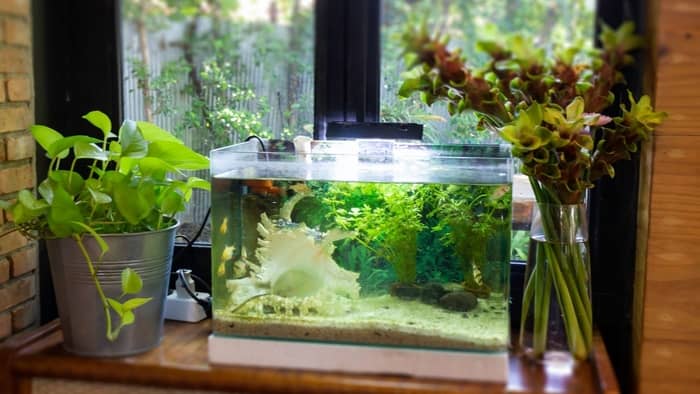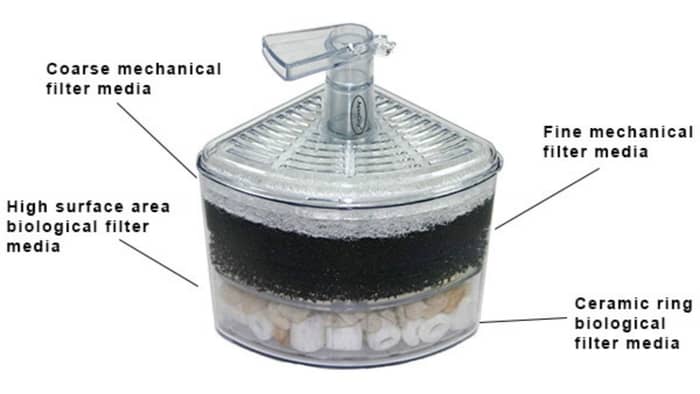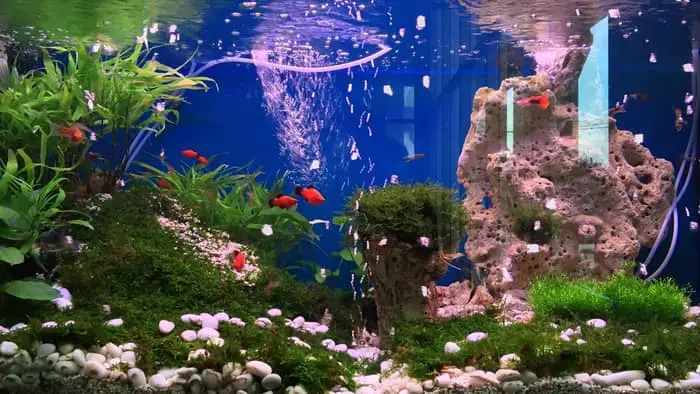Last Updated on April 11, 2022 by admins
Find out all the details you need to know about the freshwater aquarium filtration system.
Setting up an aquarium involves purchasing and then installing various devices and pieces of equipment. The vast majority of hobbyists will agree that a filtration system is one of the most important pieces because it is essential to the overall health of your underwater world. Without it, it would be impossible to keep most of the water’s beautiful creatures and live plants.
Keep reading and learn all about the freshwater aquarium filtration system.
What Is A Freshwater Aquarium Filtration System?
Filtration is a vital part of any aquarium tank, it is basically life support. Your aquatic pets produce pollution from breathing and defecating. Unfortunately if not removed or broken down, that pollution can kill the inhabitants of your aquariums as they are not equipped to swim and survive in their own waste.
When they grow and develop free in nature, fish waste products are diluted by the sheer volume of water or swept away downstream. Growing in a home aquarium is quite different because aquarium water volumes are limited and we cannot change the water constantly. In that case, the freshwater aquarium filtration system comes to our aid.
Choosing the ideal can be a daunting task, and for many beginners in this hobby, it can be overwhelming and confusing. That is why we are here to help you.
Everything You Need To Know About Freshwater Aquarium Filtration System
There are many different types of filtration systems that you can install in your aquarium. Therefore, read more about everything below.
Types of Filtration
Mechanical Filtration
Mechanical filtration removes debris and all forms of particles from the water in your aquarium. It can be anything you can imagine, from leftover food and algae to fish feces. The process is performed by passing water from the tank through foam or some other type of spongy material that keeps debris from entering back into your aquarium tank. Over time, sponges tend to clog due to accumulated particles so they must be cleaned or replaced regularly.
Biological Filtration
If you are wondering what is the most important process of a freshwater aquarium filtration system – it is definitely biological filtration. It is characterized by the fact that it does not actually involve filtering anything from your tank. Namely, it removes toxins and other dangerous chemical compounds that occur as a byproduct of underwater life.
Chemical Filtration
This type of aquarium filtration removes dissolved waste by flowing water through activated carbon. Since activated carbon is extremely porous, it tends to trap dissolved wastes and minerals such as phosphate. In addition, it can remove odors and ammonia from your freshwater aquarium.
Types Of Aquarium Filters
As for the types of aquarium filters, they can be divided into internal and external. In other words, those who are internal sit inside the tank whereas external ones sit underneath the tank in a cabinet, or hang on the back of the tank.
Corner (Box) Filters
If you are looking for the least expensive freshwater aquarium filtration system, box filters are a good option. They are ideal for small tanks, 10 gallons or less. As you can guess, this type of device got its name from the fact that they usually sit in one corner of the tank.
They haven’t been as popular lately as they used to be. They can most often be found in hospital/quarantine tanks because they are fairly gentle. As for their mode of operation, they work on the principle of using an air stone that pushes air through an air tube which in turn in turn powers water through filter floss, ultimately mechanically filtering your water. Since they are obstructively visible they are not recommended if you want to have a natural and aesthetically pleasing aquarium.
Under Gravel Filter
Most beginners generally opt for this relatively maintenance-free freshwater aquarium filtration system. UGF works by placing a filter “plate” under the gravel or substrate of your aquarium, and the air pump simultaneously pushes water through the gravel, pulling particles in your water with it.
It is an excellent form of biological as well as mechanical filtration; unfortunately, most UGFs don’t include chemical filtration. Keep in mind that it is desirable to vacuum the floor of your aquarium on a regular basis in order to remove the buildup of particles.
Sponge Filters
Sponge filters are preferred in hospital/quarantine tanks. They are small and quite inexpensive. Besides, they are recognizable by the fact that they contain an airlift tube or a powerhead that forces water through a porous sponge that collects debris and bacteria.
Power Filters
If you are looking for a freshwater aquarium filtration system that can provide excellent mechanical, biological and chemical filtration, Powers filters have only the best recommendations.
This type of aquarium filter has a chamber that hangs on the back and an intake tube that is inserted into the tank. It works by making this tube sucks water through the chamber, passing it through a chemical filter cartridge and then through a biological sponge before the water flows back into your aquarium tank. Power filters are quite cheap, easy to maintain, and therefore a great option for most hobbyists.
Canister Filters
Canister filters are an excellent option for large aquarium tanks because they have the ability to filter large amounts of water quickly and they also offer unparalleled mechanical filtration. In addition, this freshwater aquarium filtration system can be placed underneath the aquarium where it is out of sight.
As for the mode of operation, it uses a tube to suck water from the tank into the canister where it goes through several layers of mechanical filtration. In addition, water also passes through chemical and biological filters before being pushed back into the tank. This type of aquarium filter requires more maintenance than other filters and is also not affordable for everyone’s pocket.
In Conclusion
That would be it, now you know all about the freshwater aquarium filtration system. What type of aquarium filter do you have? We look forward to hearing from you in the section below.
You may be interested in Aquarium Snail Killer Chemicals; Are They Really As Effective As Some Claim?
FAQs
Which Filter System Is Best For Aquarium?
In the struggle of choosing between external and internal filters, it would be best to opt for external ones. Namely, they are mostly much larger, more powerful, and can hold a lot more media. In addition, they are offering better cleaning and supporting more aquarium pets.
How Do I Filter A Large Aquarium?
It is certainly desirable to filter large aquariums with better and stronger devices and media. In this case, most hobbyists opt for a canister filter because they can filter large amounts of water fairly quickly.
Can You Have Too Much Filtration In A Freshwater Aquarium?
That's right, you can have too much filtration in a freshwater aquarium. It would be best to find the optimal level so that your underwater world could thrive.



